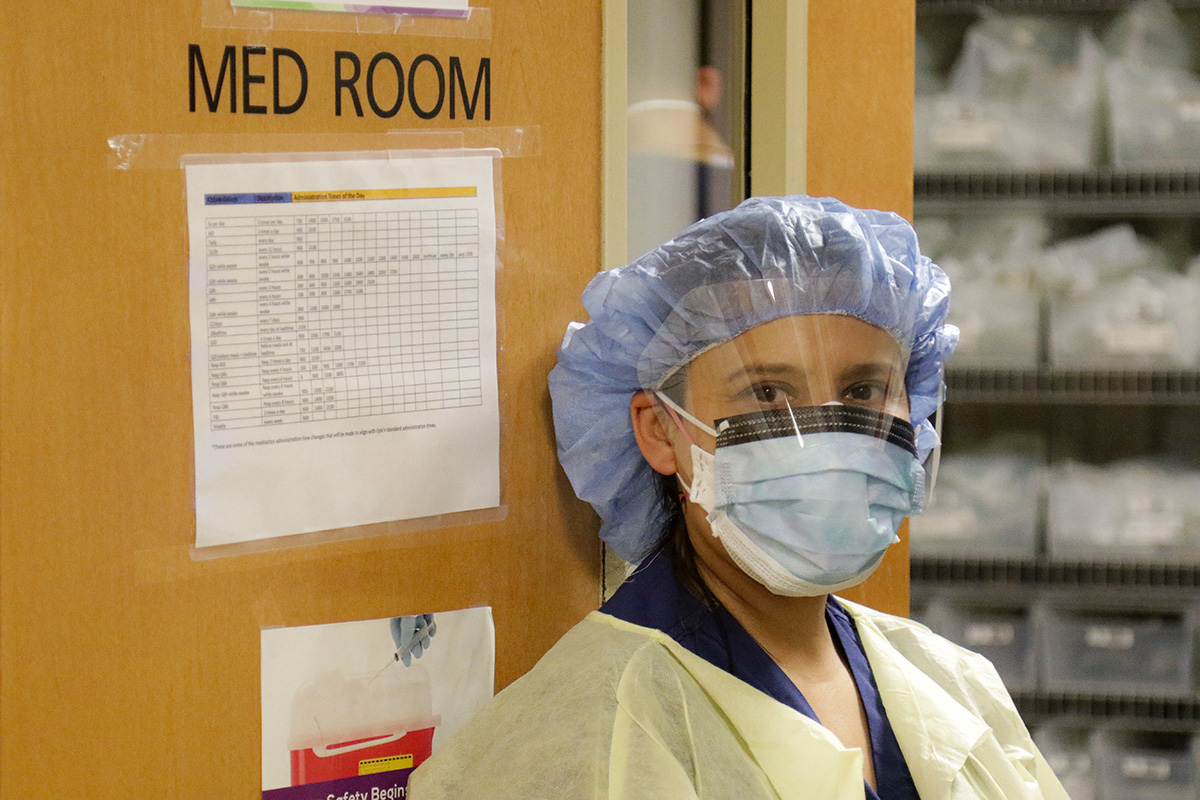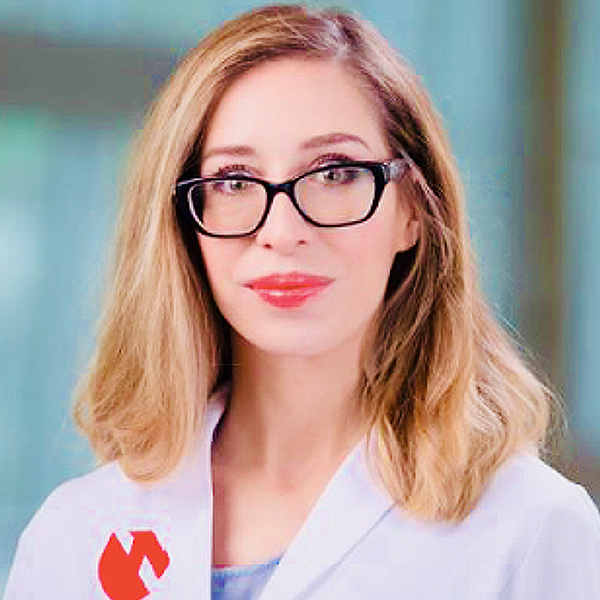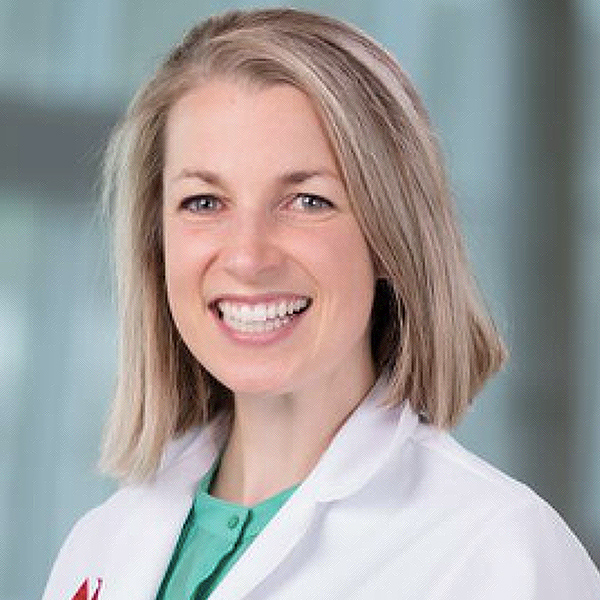The ACC WIC Midwest Virtual Symposium

Many women from across the Midwest came together on Sept. 12, 2020, for the third annual ACC Women in Cardiology (WIC) Midwest Symposium. As first year fellows, we were honored to be a part of this large online gathering of female cardiologists.
Originally set to be in Omaha, NE, the revamped, COVID-friendly, virtual conference was a dynamic invigorating knowledge-packed day!
It was kicked off with Mary Norine Walsh, MD, MACC, keynote speaker and past ACC president, discussing the importance of diversity and inclusion within the field of medicine and cardiology. She left us with a sense of pride and encouragement to do better, be better, and accept more, something we strive to integrate and emulate in our daily practice.
Her resonating talk was followed by Poonam Velagapudi, MD, MS, FACC, founder of the ACC WIC Section of the ACC Nebraska Chapter, highlighting the misrepresentation of the female gender in today's literature. This awareness encourages us to consciously recruit more women into clinical trials. Recruitment allows us to make a personal difference in the field of cardiology and aptly manage cardiac disease in females.
The remainder of the day was divided into six central sessions. We first heard about coronary artery disease in women with highlighted discussions on thrombosis, microvascular dysfunction and hormone replacement therapy. Susan Smyth, MD, PhD, FACC, from the University of Kentucky; Nicole L. Lohr, MD, PhD, FACC, from the Medical College of Wisconsin; and Amy J. Arouni, MD, FACC, from Creighton University all did a phenomenal job.

We were reminded of the gender inequity in women's symptoms, disease presentation, testing and treatment. We hope that women presenting with chest pain and labelled as "anxious" will flag further diagnostic workup to rule out microvascular dysfunction. With conflicting evidence on hormone replacement therapy, we await further evidence on the timing hypothesis for postmenopausal women and initiation of these therapies.
The session on cardio-obstetrics was moderated by Garima Sharma, MBBS, FACC, from Johns Hopkins, who took us through the management of preeclampsia and hypertension in pregnancy. These patients carry a unique risk profile and are at increased risk of developing cardiovascular, thus not only treatment during pregnancy but also prevention is the key.
Maria Mendelsen, MD, from Northwestern Medicine Feinberg School of Medicine recapped the complexities of pregnancy in congenital heart disease (CHD), reminding us of the contraindications, considerations, and the unique anatomy and physiology of these patients.
Mahi L. Ashwath, MBBS, FACC, from the University of Iowa completed the session with a discussion on peripartum cardiomyopathy, teaching us which medications can and cannot be used during the peripartum period. Cardio-obstetrics is an evolving field that will become more prominent as more women with CHD become pregnant and the incidence of acquired maternal heart disease rises.
During the session on structural heart disease, Anuradha Tunuguntla, MD, FACC, a renowned interventional cardiologist discussed sex disparities in TAVR, highlighting differences in periprocedural outcomes but similarities in 30 day and long-term mortality.
Furthering discussions on valvulopathy, Sharon Larson, MD, a surgeon from the University of Iowa, outlined the gender difference in outcomes for SAVR, with women having a higher in-hospital mortality than men but similar or better long-term survival.
Ending this session, Velagapudi gave an exceptional talk on TMVR for secondary MR. These well-rounded presentations gave us the tools and pearls to manage valvulopathy following the most updated guidelines and practices. It also nurtured the need for pause when utilizing gender-neutral guidelines to direct care and further highlighted the need for equal representation in studies.
It was an honor to present at the virtual WIC ACC Midwest Symposium as one of the FIT oral/poster presentations. @CvUnmc @unmc @nebraskacardio #interventionalcardiology #rotationalatherectomy #ACCWIC #FutureInIntervention #advancingmedicine pic.twitter.com/rHJ0arJQlu
— Kristen (@Kristen_BrownMD) September 12, 2020
#ACCWIC Mentorship and Sponsorship with these amazing 🌟🌟🌟mentors and sponsors at the Midwest WIC meeting @avolgman @DrLaxmiMehta @sandylewis @NitiCardio @hpatel824 @NanditaCGupta1 @drbrowncares @biljana_parapid @Pooh_Velagapudi @GarimaVSharmaMD @DrJMieres @AnnaGrodzinsky pic.twitter.com/gny2sJnPU9
— Toniya Singh MD FACC (@DrToniyaSingh) September 12, 2020
Congrats to Midwest #ACCWIC for hosting a thought provoking and inspiring day! Proud to be starting my career in a field with such inspirational women!
— Jaclyn Rivington (@jrivMD) September 13, 2020
Fellow in Training presentations were a huge hit with Kristen Brown, MD, from the University of Nebraska Medical Center; Omar Kousa, MD, from Creighton University; and Alexandra Sarau, MD, from Rush Univeristy presenting their challenging cases and research posters.
A session on the business of medicine was very helpful with a talk on contract negotiations by Sasanka N. Jayasuriya, MBBS, FACC. As a trainee, this task is becoming a future reality, and it enforced the need for finding a job that strikes a balance with your career goals and encouraged an extensive review of the contract document.
Niti R. Aggarwal, MD, FACC, from Mayo Clinic discussed the foundations of building a program with the Yoda principles of patience, belief, always moving forward and being in the present. Toniya Singh, MD, FACC, current ACC WIC Section chair, finished this session with RVU's in cardiology, an insightful side of practice that the trainee never sees!
A session on the "The Healthy Heart" was a compilation of pertinent subjects relating to lifestyle. Tammana Singh, MBBS, FACC, from the Cleveland Clinic elaborated on diet and cardiovascular. Singh provided a reminder to encourage Mediterranean diets with the benefit of olive oil and plant based nutrition, but gave an insightful overview of the continued nutrition gaps in knowledge like fermented foods, dairy products or certain vegetable oils.
Anne R. Albers, MD, PhD, FACC, from the Ohio Health Vascular Institute explored the cardioprotective effects of exercise with proven improvement in psychological health, decrease in atrial fibrillation burden, antithrombotic effects, as well as decrease in blood pressure, adiposity and inflammation.
Sherry-Ann Brown, MD, PhD, FACC, from the Medical College of Wisconsin closed off this session with a thoughtful discussion on wellness, using her own slogan R.E.D. C.U.P.

The pandemic has provided a level of heightened stress on all healthcare workers, it is important to maintain some level of control in Relationships, Exercise/hobbies, Diversity/Delegationce, Compassion for self, Unplug and Purpose.
As first year fellows the session that was most impactful was one on mentorship and sponsorship led by Sandra J. Lewis, MD, FACC, and Annabelle S. Volgman, MD, FACC. Exploring how often these terms may be confused, but there is need for both of them in our training and careers.
Mentors are people who help you gain skills, perspective and talk with you, conversely, sponsors move you up, give you opportunities and talk about you. It was fitting for the final session to be a mentee of Volgman and Hena Patel, MD, who navigated us through how to get involved on a national level.
As a result of this talk, both of us signed up for ACC's Legislative Conference! There is a wealth of opportunities and experiences within the ACC.
The closing discussion was led by Sasha K. Shillcutt, MD, MS, the author of "Between Grit and Grace: The Art of Being Feminine and Formidable" who encouraged each and every one of us to invest in ourselves and empower each other to be brave and authentic.
It was the perfect closing to a remarkable day of learning.
We would like to thank all of the presenters, moderators and organizers of this most extraordinary event.



